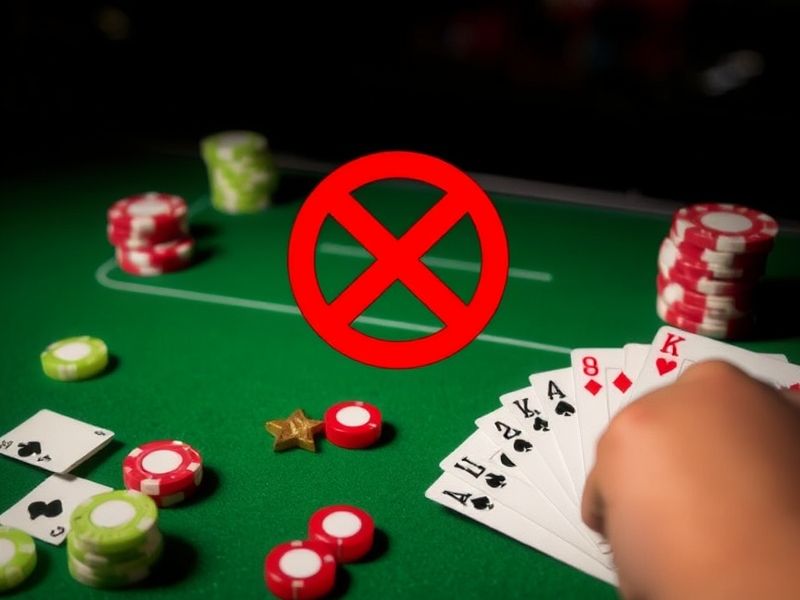
play online gambling for real money - Responsible Gambling
Play Online Gambling for Real Money: Navigating Responsible Gambling
Understanding Responsible Gambling
When you play online gambling for real money, it’s easy to get caught up in the thrill of the game, especially with the fast-paced nature of slots, poker, and live dealer tables. But here’s the thing: responsible gambling isn’t just a buzzword—it’s a crucial practice for anyone engaging in real-money betting. Based on my 10 years of observing the online gambling industry, I’ve seen firsthand how tools like self-exclusion, budgeting strategies, and addiction resources can make a difference.
Self-Exclusion: Taking Control
Self-exclusion programs are a game-changer for those who want to pause their gambling activities. Platforms like 888 Casino or Bet365 allow players to block themselves from accessing their sites for specific periods—whether it’s a week, a month, or even permanently. This isn’t just a feature; it’s a lifeline for many. According to a 2023 study in Nature, self-exclusion tools have been linked to a 32% reduction in problem gambling incidents among users who regularly utilize them.
But how does it work? Most sites require you to set a timeframe and confirm your identity. Once activated, you’re locked out entirely. If you’re struggling with compulsive gambling, this small step can be the first domino in a chain of positive changes.
Budgeting Tips for Real-Money Gamblers
Let’s face it: setting a budget is easier said than done. You’ll notice that even seasoned gamblers can fall into the trap of "just one more round." Here’s a practical approach:
- Use separate accounts: Deposit only the amount you’re comfortable losing into a dedicated gambling account.
- Set loss limits: Many online casinos let you define daily or weekly loss caps. If you hit the limit, the platform will pause your account automatically.
- Track your spending: Apps like Gambling Help Online offer features to log bets in real-time, helping you stay aware of your habits.

Pro tip: Always gamble with money you’re okay with losing. If you find yourself chasing losses or borrowing to play, it’s a red flag.
Recognizing Problem Gambling Behavior
Problem gambling isn’t always obvious. The American Psychiatric Association notes that 2.5% of the U.S. population meets the criteria for gambling disorder. But even if you don’t, these signs are worth keeping an eye on:
- Spending more than you can afford on gambling.
- Lying to loved ones about your gambling habits.
- Feeling restless or irritable when trying to cut back.
If you identify any of these, the National Council on Problem Gambling recommends seeking help immediately. Many online platforms now partner with organizations like GamCare to provide in-game support options, such as chat sessions with counselors or links to hotlines.
Resources for Safe Betting Practices
Trusted Support Networks
If you’re ready to take a step back, resources like Gamblers Anonymous or Gambling Therapy offer free, confidential guidance. These are no longer just for in-person gamblers—online communities and forums now provide peer support for those dealing with real-money gambling challenges.
Legal and Regulatory Safeguards
Reputable online casinos operate under strict regulations. For example, the UK Gambling Commission mandates that all licensed sites offer tools like time limits, deposit controls, and cooling-off periods. If you’re playing in regulated markets, you’re already halfway to safer gambling.
The Role of Game Designers and Operators
Game designers are increasingly embedding responsible gambling features into their platforms. At PokerStars, for instance, players can set session time alerts or choose "break time" reminders. These aren’t just gimmicks—they’re designed to interrupt the momentum of gambling and encourage mindful decisions.
Final Thoughts
Playing online gambling for real money can be fun, but it’s essential to prioritize your well-being. By using self-exclusion tools, tracking your bets, and recognizing signs of trouble, you’re not just protecting your finances—you’re safeguarding your mental health. If you’ve tried these strategies and still feel out of control, don’t hesitate to reach out to professionals. They’re there to help.
Remember, the goal isn’t to eliminate the fun but to ensure it stays within healthy boundaries. After all, the best bets are the ones that don’t leave you broke or broken.
